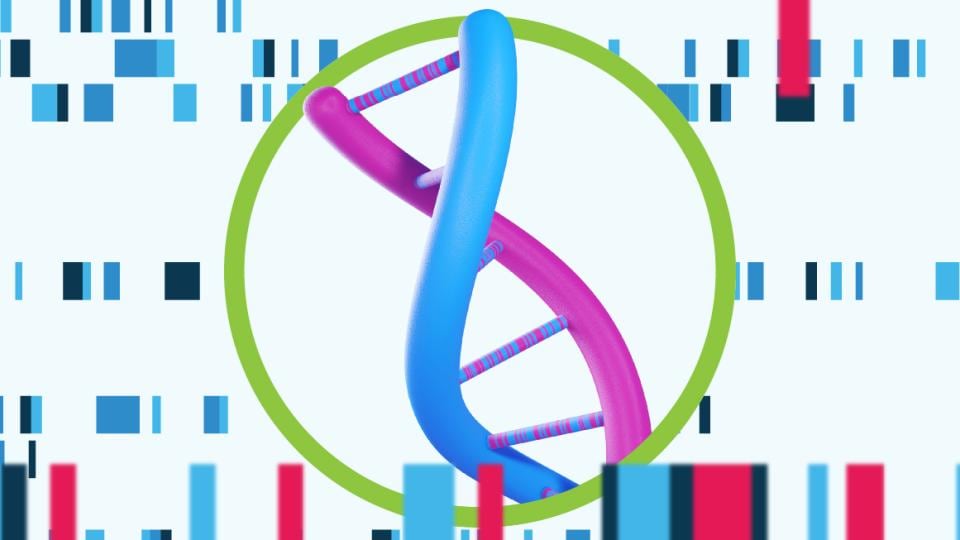With More Science and Less Silence, Menopause Enters a New Age

Though every woman will transition into menopause, no two experiences are the same. While some women welcome this new chapter, some go through menopause with a minimum of symptoms and little impact on their life, many others feel uncomfortable and unprepared for the range of life-altering changes that can be debilitating and marginalizing. Through more conversation and medical innovation, the mystery of menopause is unraveling.
Picture a performer whose hot flashes made her sweat so heavily that she shorted out the microphone. Now imagine an energetic physician who wakes up drenched in sweat every night and is exhausted in the morning, and a once-confident executive concealing sudden urges to cry at work. These are real experiences of women whose lives were upended by the onset of menopause – an inevitable process of ovarian aging that around 47 million women enter every year when their hormone production declines and they cease to have a period.1 By 2030, the world population of menopausal and postmenopausal women is projected to increase to 1.2 billion.1
Approximately one third of women will have negligible symptoms, while up to 80 % will at some point experience vasomotor symptoms such as hot flashes, anxiety, and sleep disturbances; in severe cases, these can last 10 years or more after the last menstrual period.2 Though the study of menopause dates back to Aristotle3, misconceptions still surround the science of this turning point and its impact on a woman’s relationships, career, and self-esteem.
Am I in Menopause or already through?
Deriving from the Greek words for month and cessation, menopause is a point in time 12 months after a woman's last menstrual period, when she is no longer able to get pregnant naturally.4 This usually happens between ages 45 and 554 – an age where most women are extremely active in their personal and professional lives, often even having children to care for.
After the topic had long been taboo , global awareness around menopause has risen over the last years, supported by awareness campaigns such as World Menopause Day, workplace initiatives and celebrities speaking out. But still today, many women don’t know the difference between menopause and perimenopause – the transitional years when declining estrogen levels can cause disruptive physical and emotional effects such as menstrual irregularities, anxiety, “brain fog”, and mood swings.5,6 Another hallmark symptom is hot flashes, a sudden feeling of heat usually in the upper part or all of the body often accompanied by flushed skin, sweating, shivering, or heart palpitations.7
These symptoms can significantly alter a woman’s state of health, happiness, and productivity; however, research shows that a minority of women today are receiving treatment, and many physicians are untrained and uncomfortable when it comes to discussing menopause with their patients.8
A Taboo in Transition?
Though an inevitable part of the aging process and not a disease, menopause has long carried negative connotations of losing one’s vitality and usefulness. As opposed to sexual and reproductive health education for adolescents, the basic biology of menopause has not been widely discussed or well understood by women throughout the generations.9 Symptoms are often downplayed, misattributed, and used as a punchline; they cast doubt on women in the workplace where it is harder to hide unpredictable shifts in emotions or appearance; and at a stage when women are increasingly reaching the prime of their lives, the signs and stigma of menopause can be isolating.
A survey conducted in the UK found that most women experiencing menopausal symptoms said they had a negative impact on their work.10 Here, where women over age 50 represent the fastest growing segment of the workforce, many are calling for the introduction of formal policies to protect these women from discrimination.11 Across Europe, the US, Australia, and elsewhere, growing advocacy efforts, research, and media attention aim to end the silence around menopause and improve women’s lives during this journey.12,13,14
“Menopause is still a taboo topic, where discussions are focused on coping with symptoms, and women are often hesitant to seek support.”, explains Cecilia Caetano, Gynecologist/Obstetrician and Head of Medical Affairs Women's Health at Bayer. “Therefore, raising awareness, identifying and addressing barriers by providing accurate information is crucial. This will empower women to proactively speak to their doctors and make informed choices about menopause management, allowing them to take charge of their health and well-being.”
More Choices for Menopausal Women
As a general rule for women facing menopause, adopting healthy habits is key. This includes regular exercise, weight management, and avoiding smoking and excessive alcohol use. But lifestyle changes aren’t always enough.
For too long, women have dealt with menopausal symptoms that strongly impact their quality of life, with limited or no options for relief.
As the science behind menopause unfolds, Bayer is working on innovative solutions to broaden the therapeutic landscape as a whole – because menopause is more than just vasomotor symptoms (hot flashes). We are excited and thereby hopeful for addressing the high unmet need to broaden the treatment options as the majority of women’s menopause symptoms remain untreated.
As a global leader in Women’s’ Healthcare with 100 years of heritage and expertise, Bayer has innovated and continues to drive innovation in women’s health. We offer a distinctive portfolio to address different needs of women in their journey, from menarche to menopause. Empowering women with information, as well as therapeutic choices, and levelling-up the standard of care with breakthrough innovations, Bayer is committed to building a new era of women’s health today and in the future.
References
1Maturitas. The demography of menopause. 1996 Mar;23(2):113-27. doi: 10.1016/0378-5122(95)00968-x. Viewed September 21, 2021. https://pubmed.ncbi.nlm.nih.gov/8735350/
2 Menopause: The Journal of The North American Menopause Society Vol. 27, No. 5, pp. 498-505.
3National Institutes of Health. A historical perspective on menopause and menopausal age. Bull Indian Inst Hist Med Hyderabad. Jul-Dec 2002;32(2):121-35. Viewed September 13, 2021. https://pubmed.ncbi.nlm.nih.gov/15981376/#:~:text=Aristotle%20referred%20to%20age%20at,it%20as%20a%20deficiency%20disease
4National Institutes of Health. What is Menopause? Viewed September 13, 2021. https://www.nia.nih.gov/health/what-menopause
5Forbes. 73% of Women Don’t Treat Their Menopause Symptoms, New Survey Shows. July 13, 2021. Viewed September 13, 2021. https://www.forbes.com/sites/debgordon/2021/07/13/73-of-women-dont-treat-their-menopause-symptoms-new-survey-shows/?sh=76fcac38454f
6AwarenessDays.com. World Perimenopause Day 2021. Viewed September 21. https://www.awarenessdays.com/awareness-days-calendar/world-perimenopause-day-2021/
7National Institutes of Health. What Are the Signs and Symptoms of Menopause? Viewed September 13, 2021. https://www.nia.nih.gov/health/what-are-signs-and-symptoms-menopause
8AARP. What Doctors Don’t Know About Menopause. August/September 2018. Viewed September 13, 2021. https://www.aarp.org/health/conditions-treatments/info-2018/menopause-symptoms-doctors-relief-treatment.html
9The Conversation. The menopause: dreaded, derided, and seldom discussed. October 18, 2017. Viewed September 13, 2021. https://theconversation.com/the-menopause-dreaded-derided-and-seldom-discussed-85281
10Chartered Institute of Personnel Development. Majority of working women experiencing the menopause say it has a negative impact on them at work. February 2020. Viewed September 13, 2021. https://www.cipd.co.uk/about/media/press/menopause-at-work
11Chartered Institute of Personnel Development. The CIPD launch policy manifesto for menopause at work. Oct 18, 2019. Viewed September 13, 2021. https://www.cipd.co.uk/news-views/news-articles/manifesto-menopause-work#gref
12Victorian Women’s Trust. Menstrual Workplace Policy. Viewed September 13, 2021. https://www.vwt.org.au/projects/menstrual-workplace-policy/
13National Institutes of Health. Funding: Mood and Psychosis Symptoms during the Menopause Transition. Posted November 18, 2020. Viewed September 13, 2021. https://grants.nih.gov/grants/guide/rfa-files/RFA-MH-21-105.html#_Section_I._Funding
14Thomson Reuters. How employers can support menopausal women at work. March 15, 2021. Viewed September 13, 2021. https://www.thomsonreuters.com/en-us/posts/legal/support-menopausal-women/




















